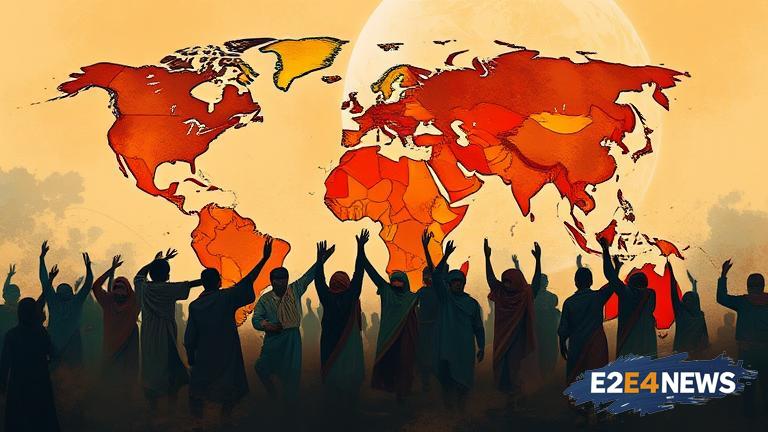The Rohingya crisis, which has been ongoing for years, has resulted in the displacement of hundreds of thousands of people, with many forced to flee their homes in Myanmar and seek refuge in neighboring Bangladesh. The situation has been described as a textbook example of ethnic cleansing, with reports of widespread human rights abuses, including murder, rape, and arson. The international community has been criticized for its slow response to the crisis, with many calling for greater action to be taken to protect the Rohingya people. The United Nations has described the situation as a humanitarian crisis, with many Rohingya living in squalid conditions in refugee camps. The Bangladeshi government has been working to provide aid to the refugees, but the task is daunting, with many more resources needed to meet the basic needs of the displaced population. The international community must come together to provide support to Bangladesh and to hold those responsible for the ethnic cleansing accountable. This includes providing financial and humanitarian aid, as well as working to ensure that those responsible for the atrocities are brought to justice. The Rohingya people have the right to return to their homes in Myanmar, but this must be done in a safe and voluntary manner. The international community must also work to address the root causes of the crisis, including the discriminatory policies and practices that have led to the persecution of the Rohingya. This includes working to ensure that the Rohingya have equal access to education, employment, and healthcare, and that they are protected from violence and discrimination. The situation is complex, but it is clear that the international community has a responsibility to act. The Rohingya people are not just a statistic, they are human beings who deserve to be treated with dignity and respect. The world must come together to ensure that they receive the protection and support they need. The crisis is not just a regional issue, but a global one, requiring a collective response. The international community must work together to prevent further human rights abuses and to ensure that those responsible are held accountable. This includes working with the government of Myanmar to ensure that the Rohingya are protected and that their rights are respected. The situation is a test of the international community’s commitment to human rights and dignity. The world must not turn a blind eye to the suffering of the Rohingya people. The crisis requires a comprehensive and sustained response, including humanitarian aid, political support, and accountability. The international community must also work to address the long-term needs of the Rohingya people, including their right to return to their homes and to rebuild their lives. The situation is a reminder that the protection of human rights is a collective responsibility, requiring the active engagement of governments, international organizations, and civil society. The Rohingya crisis is a humanitarian emergency that requires immediate attention and action. The world must come together to ensure that the Rohingya people receive the protection and support they need, and that those responsible for the ethnic cleansing are held accountable. The international community must work to prevent further human rights abuses and to ensure that the Rohingya are able to live in safety and dignity. The crisis is a reminder that human rights are universal and inalienable, and that it is the responsibility of the international community to protect them. The world must not fail the Rohingya people, and must work to ensure that they receive the justice and protection they deserve.
